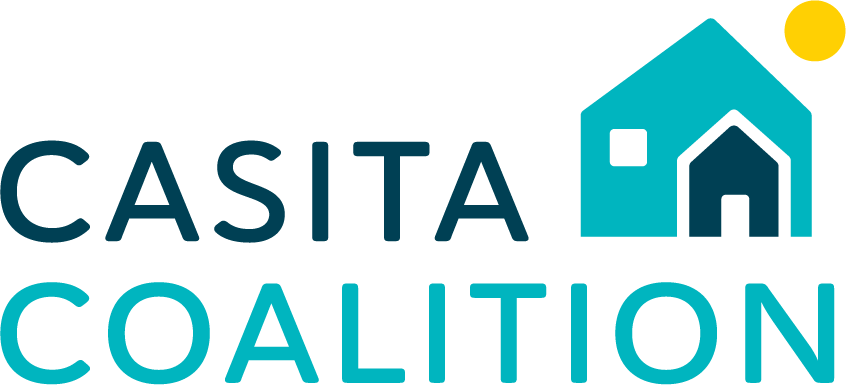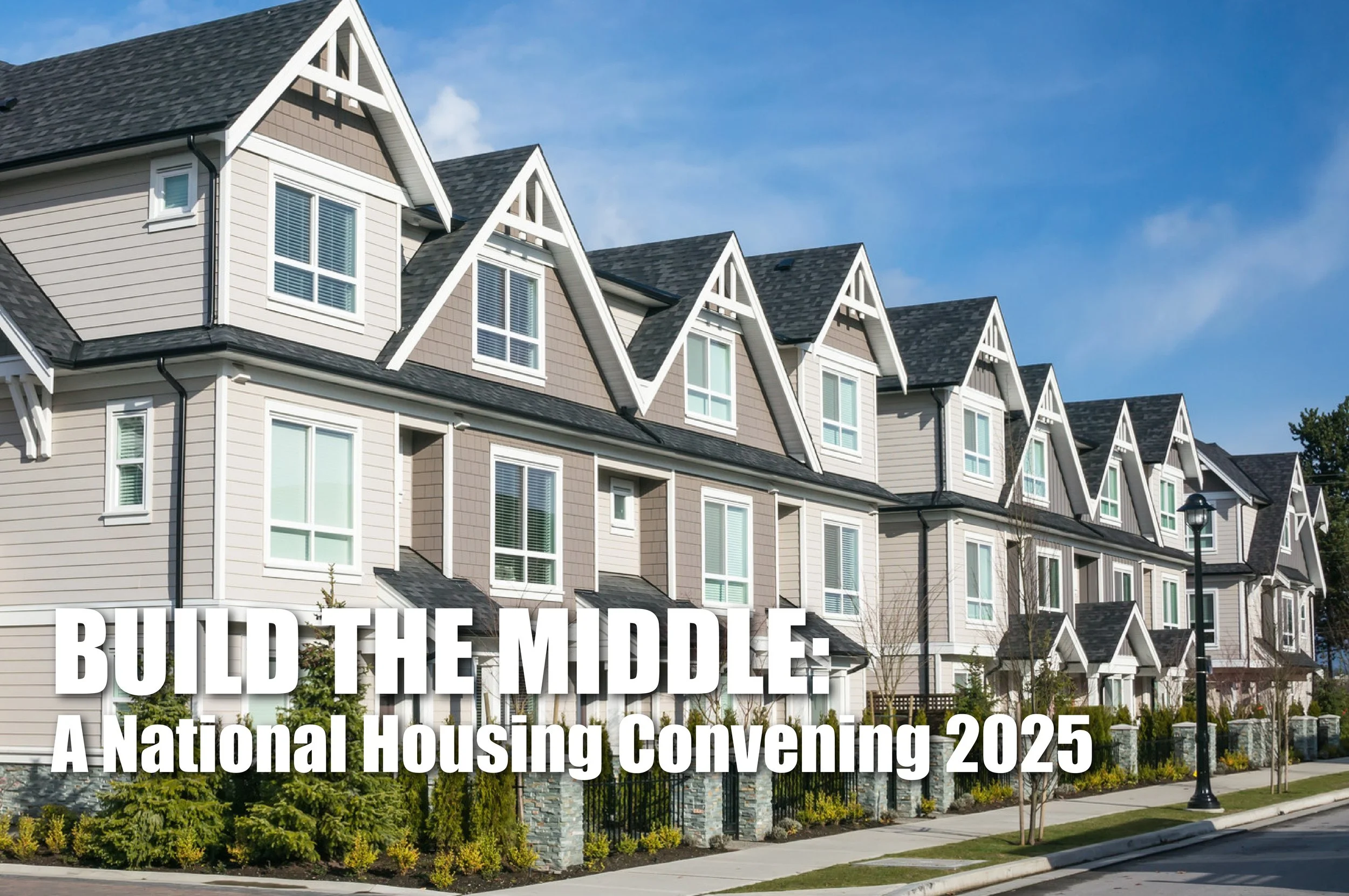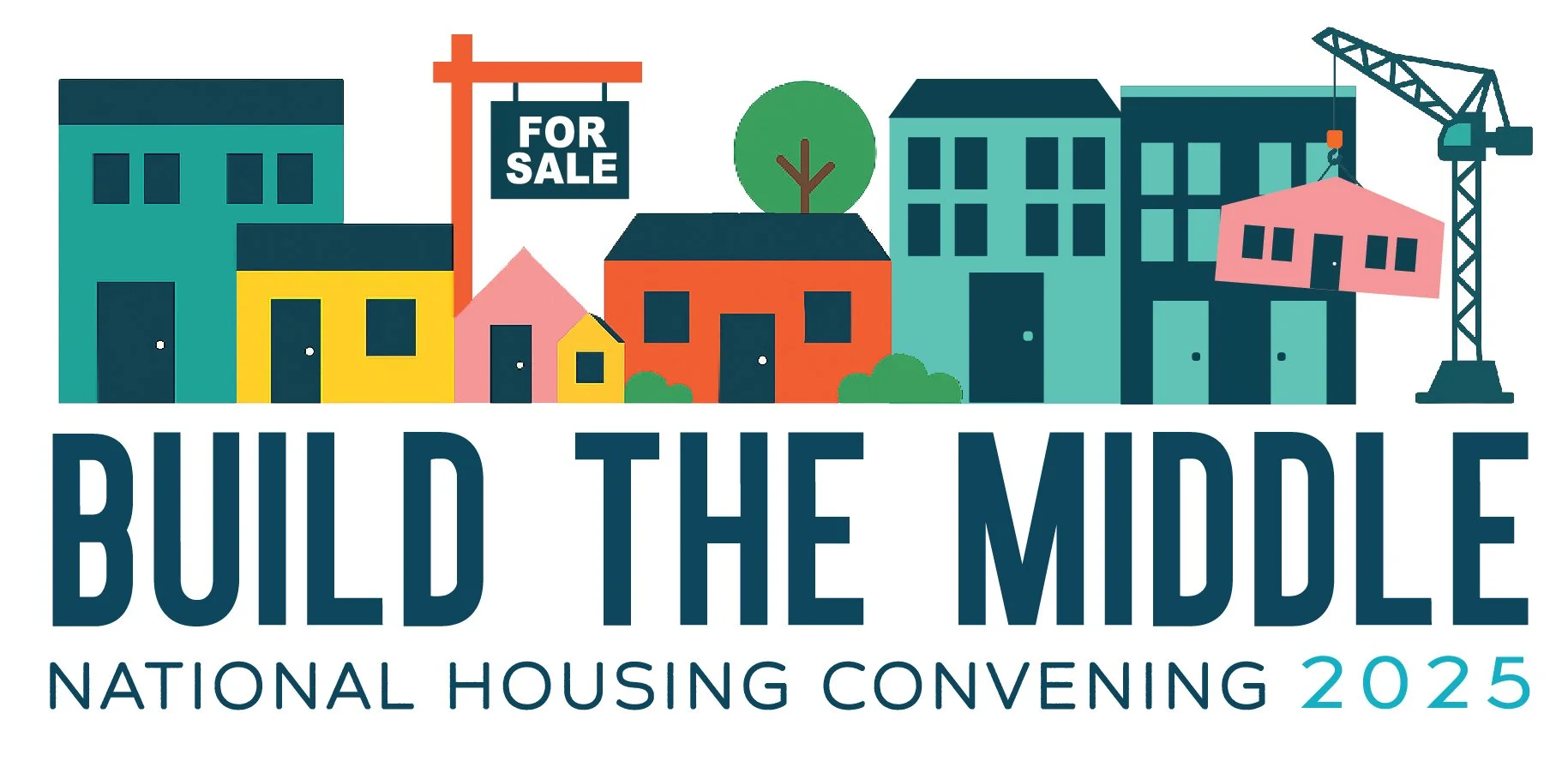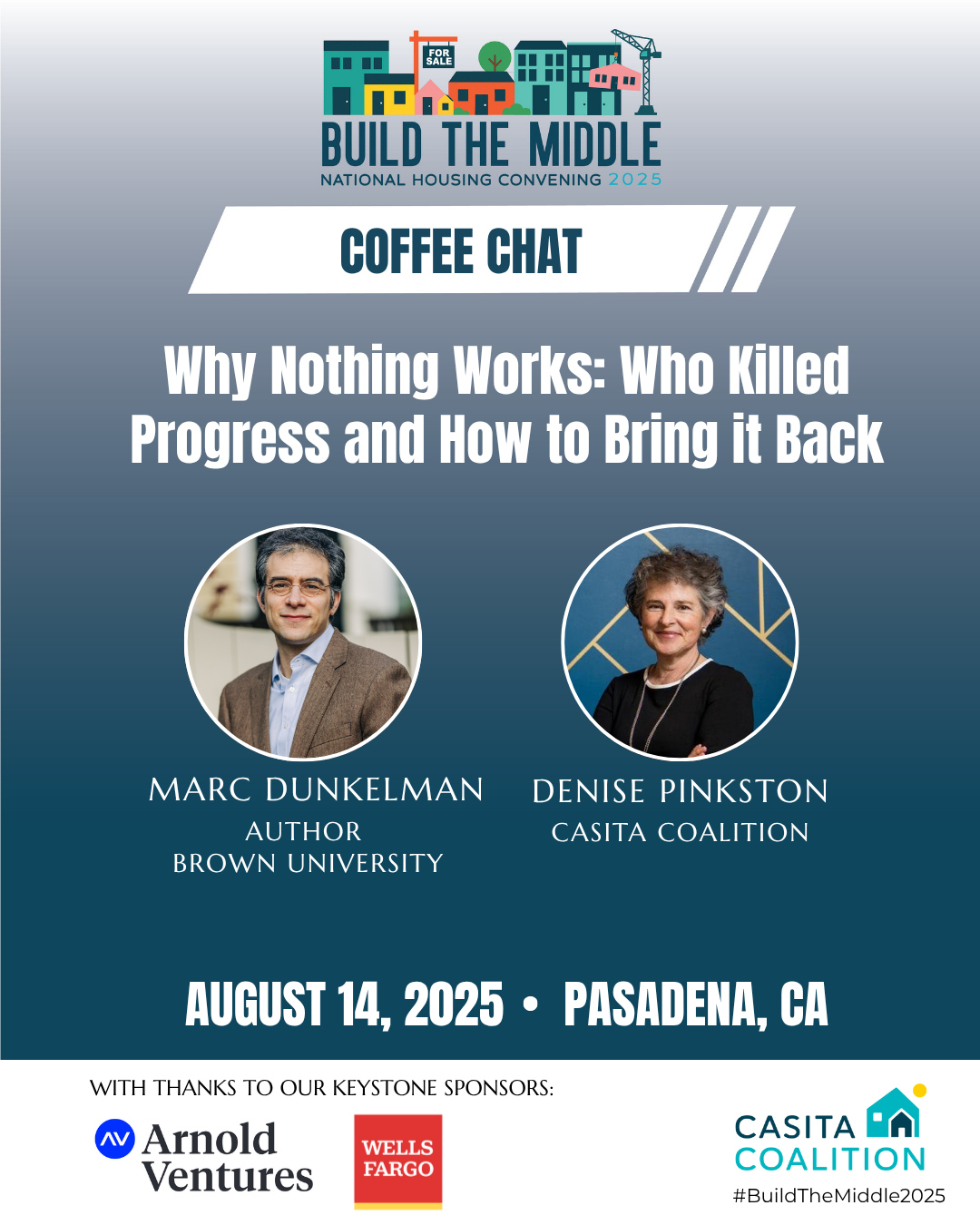Thank you to all who attended our second Build the Middle National Housing Convening. A special thank you to our sponsors, major funders, speakers and panelists!
Casita Coalition’s 2025 Build the Middle convening in Pasadena brought together leaders from across sectors to drive bold, practical solutions for building more neighborhood-scale housing— from ADUs to duplexes, townhouses, cottage courts and more. Thanks to all who participated in shaping the future of housing through the power of convening!
Coming soon: Event photos, panel summaries and takeways.
Don’t miss our next convening! Get on our newsletter mailing list for follow-up opportunities from Build the Middle 2025 and news about our upcoming webinars and other events!
Mainstage Sessions
-
Across the country, the starter home has all but disappeared-taking with it a key pathway to wealth-building and stability for millions of families. This panel will explore bold and practical solutions to revive entry-level homeownership. From ADU condominiums to townhomes, lot splits, and cottage courts, we’ll spotlight what’s working in other states and cities–and unpack the regulatory, financing, and implementation barriers holding back broader adoption. Join us for a deep dive into the policy interventions needed to restore housing affordability, expand access to ownership, and rebuild the American dream from the bottom up.
-
As wildfires intensify across California and the nation, our housing recovery strategies must evolve. This panel will explore how ADUs and middle housing are emerging as powerful tools in the Los Angeles wildfire recovery effort–and what lessons can be drawn from other post-disaster rebuilding efforts from around the country. We’ll go beyond high-level discussion to examine the real-world implementation challenges, including insurance barriers, permitting roadblocks, fire hardening, education, financing and the need for pre-disaster planning. With climate risk rising and housing supply already strained, the next disaster is not a matter of if–but when. This conversation will focus on action: what needs to change 7 months post-fire to ensure we can speed up the rebuilding efforts more affordably, equitably and resiliently.
-
What if we dare to dream we could dramatically lower costs, cut building timelines, and rethink what a home can be–all while scaling middle housing solutions across the country? This panel will spotlight the disruptors–companies, advocates, and thought leaders–redefining how we design, finance, build, and permit middle housing. We’ll explore the most promising innovations addressing the key barriers to production: high labor and material costs, outdated permitting processes, long construction timelines, and restrictive zoning. From modular and manufactured solutions to new partnership and financing models, we’ll showcase what’s possible when innovation meets urgency.
-
The middle housing movement is gaining momentum–from zoning reforms to new financing models to state and local breakthroughs across the country. In this closing plenary, we’ll take stock of where the movement stands, what’s next, and how we build collective power to make abundant, resilient, diverse housing a national priority. We’ll unveil the National Middle Housing Agenda–endorsed by a growing coalition of partners–and outline the bold, coordinated actions needed to turn momentum into lasting change.
Breakouts—First Session
-
Accessing capital to build middle housing–especially ADUs, duplexes, and townhomes–remains a major challenge for small-scale builders and homeowners alike. This session will break down the financing tools currently in play: HELOCs, construction loans, CDFIs, state and local programs, and creative new models emerging in the field. Designed for practitioners, we’ll get into what’s working, what’s not, and how to unlock the capital needed to scale.
-
With AB 1033, California lifted the ban on converting ADUs into individually owned condos–opening the door to a new supply of starter homes. But, implementation is still a work in progress. This breakout dives into what it takes to make ADU condos real, from condo mapping and financing to legal frameworks and homeowner education. We’ll learn from early adopters like San Jose, Santa Cruz, and Berkeley, tap lessons from cities like Austin and Portland, and explore how to grow the coalition of opt-in municipalities ready to lead the way.
-
Permitting delays are one of the biggest barriers to getting middle housing and ADUs built. This session brings together local leaders, practitioners, and reform advocates to unpack what’s slowing things down–and what’s working to speed things up. From digital tools to staffing strategies, concurrent review, amnesty programs, pre-approvals to state mandates, we’ll explore how to modernize permitting systems so good projects don't get stuck in bad processes
Breakouts—Second Session
-
If we want backyard housing to reach under-resourced homeowners, nonprofit-led programs are essential. This session explores how trusted community organizations can help design ADU programs that are accessible, equitable, and fraud-resistant. We’ll dive into real examples of nonprofit partnerships that connect homeowners to financing, protect them from bad actors, protect against displacement, and ensure the benefits of ADUs reach those who need them most.
-
Financing remains one of the biggest barriers for homeowners who want to build ADUs–especially those without access to cash or equity. This session will unpack what’s needed to change that: from federal action and shared equity models to the role of Housing Financing Agencies and the creation of a viable secondary market. We’ll hear from those laying the groundwork and explore the bold steps industry, government, and mission-driven partners must take to scale equitable ADU financing nationwide.
-
You can’t build housing without infrastructure–but for too many communities, the pipes, power, and planning simply aren’t in place, and goals for all-electric homes increase grid capacity needs further. This session will tackle one of the most overlooked barriers to middle housing development: infrastructure readiness. These hidden hurdles can derail even the best-laid housing plans for communities and for individual projects, as builders face unpredictable util



























